Ministers defended the need for new measures in Hong Kong’s draft homegrown security law as the public consultation period on Article 23 – as it is colloquially known – drew to a close, with journalists and others expressing fears the new legislation may curb free speech.

Veteran activist Koo Sze-yiu was jailed for nine months under the colonial-era sedition law for a protest that did not take place, artistic performances were cancelled over national security concerns, and members of the group which used to organise Hong Kong’s annual Tiananmen vigils must wait until November at the earliest to face trial.
HKFP rounds up these events, and others, in the 44th month since Beijing imposed its own national security legislation on the city, criminalising secession, subversion, terrorism, and collusion with foreign forces.
Hong Kong’s proposed new security law
Article 23 consultation period ends
Just over four weeks after Chief Executive John Lee, justice minister Paul Lam and security chief Chris Tang unveiled a public consultation paper for Hong Kong’s homegrown security law, the public consultation period closed on February 28.
According to the Security Bureau, almost 99 per cent of submissions received expressed support for the forthcoming security law. Authorities said they received 13,147 submissions, around 15 per cent of the more than 90,000 views received during the same exercise in 2002.
Article 23 of the Basic Law stipulates that the government shall enact laws on its own to prohibit acts that endanger national security. Its attempt to introduce such legislation failed in 2003 following mass protests and it remained taboo until after Beijing imposed its own security law in June 2020.
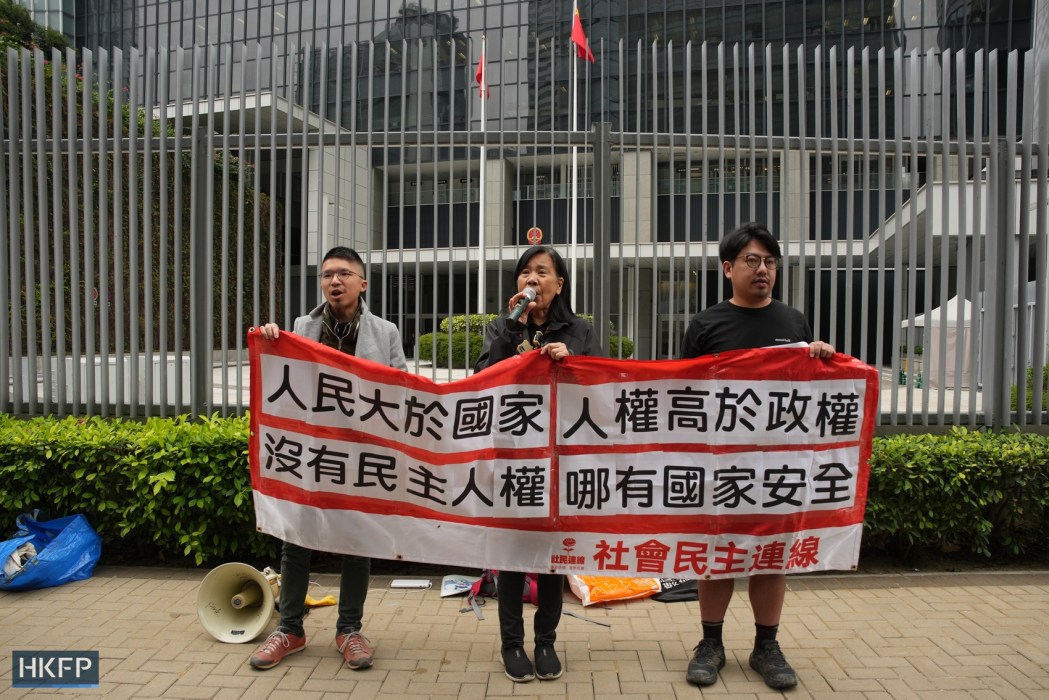
Despite Lee’s assertion that a “majority” of opinions expressed had been supportive of the need for further security legislation – including those expressed by the head of the city’s anti-graft body and the prison services chief – there were some who expressed concerns.
After attending several closed-door seminars to explain the impending law to various sectors of society, including diplomats and representatives of foreign and local chambers of commerce, Tang said participants had questions about two proposed offences: “theft of state secrets” and “external interference.”
One of Hong Kong’s last remaining pro-democracy parties, the League of Social Democrats, was among few local groups to raise concerns about the security law, citing the legislation’s potential impact on freedoms.
Possible public interest defence for ‘state secrets’ leaks
Hong Kong will consider whether a “public interest” exemption should be included in the theft of state secrets offence, security minister Tang said. He noted that some people thought leaks on matters of “significant public interest” should be exempt from prosecution.
“We will give it thorough consideration after hearing from the public,” Tang said.
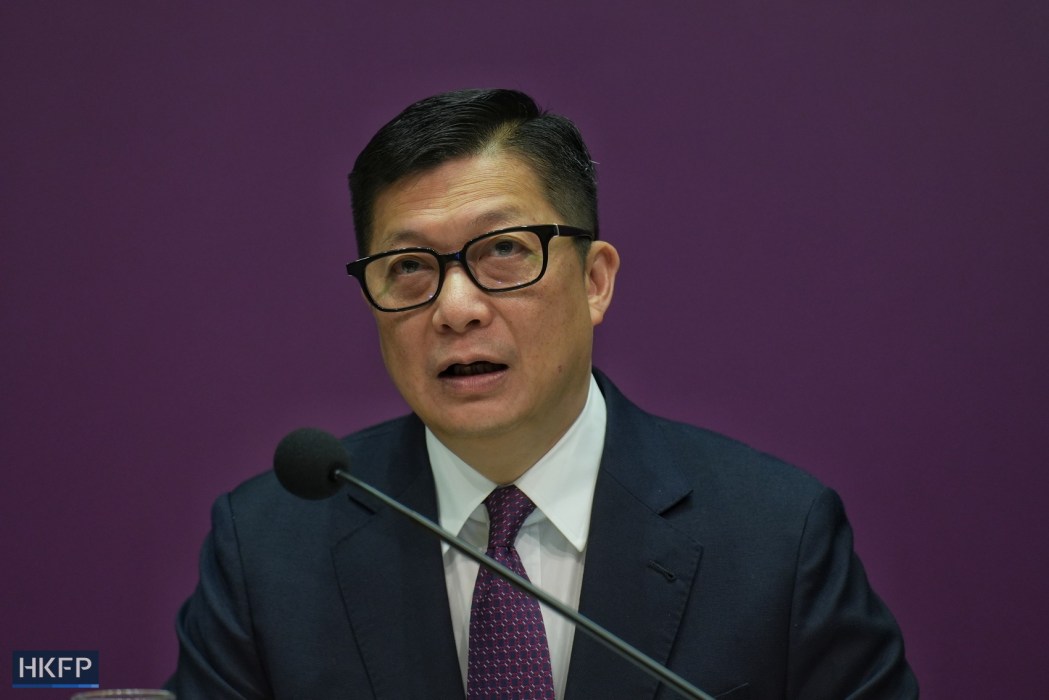
The following day, Hong Kong Bar Association Chairman Victor Dawes said that authorities should “definitely consider” including such a defence in the legislation. The Law Society of Hong Kong also recommended allowing a public interest defence.
Journalists’ ‘feel in danger’
The city’s largest press group, the Hong Kong Journalists Association, expressed concern that the new national security law could have “far-reaching implications” for the press and urged the government to provide protections for reporters. Its chair Ronson Chansaid during a talk at the Foreign Correspondents’ Club that the “vague” legislative proposals for Article 23 had caused journalists working in the city to “feel in danger.”
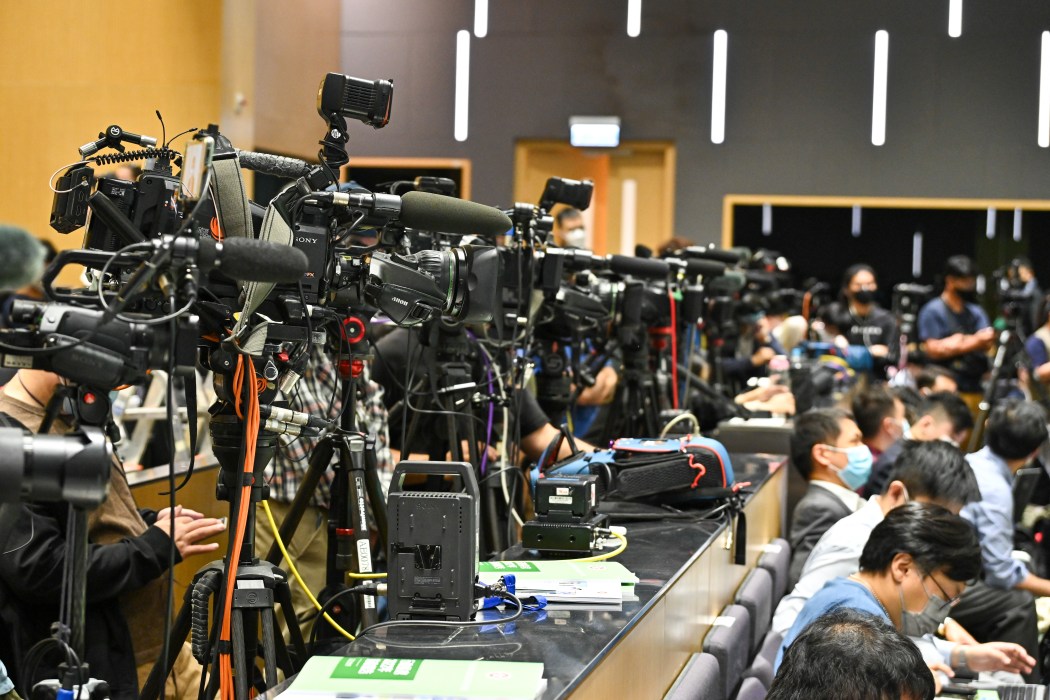
Preliminary results from a survey by the HKJA showed that more than 90 per cent of respondents believed the legislation would have a significant impact on their work.
One of those impacts was cited by the secretary for justice, who warned media outlets to be “cautious” and consider whether elements of “abetting” were involved when interviewing wanted Hong Kong activists, as it may amount to giving them a platform to express views in breach of national security.
Existing sedition penalties ‘insufficient’
The upcoming national security law should increase the penalties for sedition, security minister Tang said, describing the current two-year maximum prison term for a first offence as “insufficient.”
According to the Article 23 consultation paper, “seditious intention” should cover incitement of hatred against “the fundamental system of the State, ” which is defined as “the socialist system led by the Communist Party of China” according to the Constitution of China.
It also penalises the intention to incite hatred “amongst residents of HKSAR” or “among residents of different regions of China.”
Tang acknowledged that some Hongkongers were worried that criticising the government may be deemed sedition under the new legislation. “I want to state again, this will not happen. The sedition law exists now, targeting seditious and provocative speech; criticism which is based on fact and appropriate will not violate the law,” Tang said.
Foreign feedback on Article 23
In mid-February, senior government adviser Regina Ip noted what she called a lack of international criticism over plans for new security legislation.
“So far, not a single country has issued a statement [since] we published the consultation document,” Ip said.
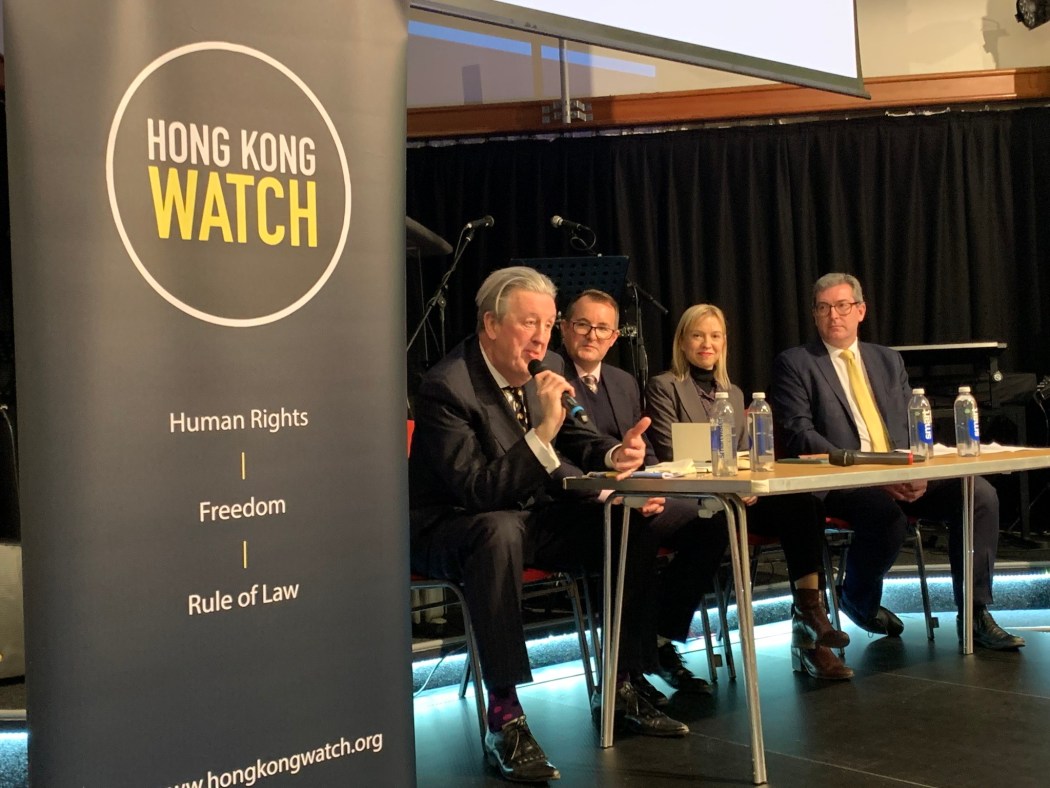
Days later, the government issued a statement condemning what it called "deliberate smears" after a group of international NGOs said the proposed law would "bring further devastating consequences for human rights" in Hong Kong.
“The proposed law includes a number of procedural changes that will dramatically undermine the Hong Kong people’s due process and fair trial rights,” said the joint statement signed by groups based in countries including the US, UK and Canada.
After the public consultation period closed, local press groups, foreign governments and overseas monitoring groups made their submissions public, with many criticising the proposed provisions as being too broad and lacking protection for journalistic activities.
Worries law will 'mainlandise' Hong Kong
Justice chief Lam denied that the legislation would “mainlandise” the city. “I disagree with [this concern] 100 per cent,” Lam said after attending a press conference with selected media outlets, not including HKFP.
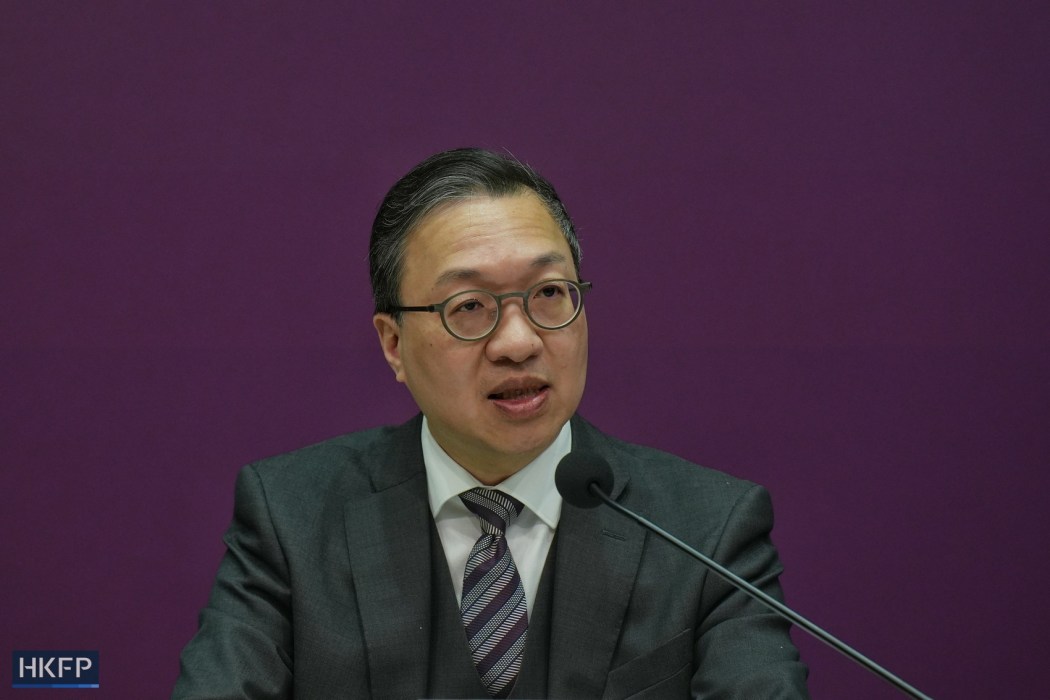
“[Hong Kong] worked on the legislation independently, applying the rules of common law. Common law is a characteristic of Hong Kong, a totally different system from that of mainland China,” Lam said.
Trial of Jimmy Lai continues
Chan Pui-Man testifies for the prosecution
The trial of Hong Kong media tycoon Jimmy Lai - accused of two counts of conspiring to collude with foreign forces under the national security law and one charge of sedition - continued throughout February.
Chan Pui-man, who was associate publisher of Lai's pro-democracy tabloid Apple Daily before it shut down in June 2021, spent most of the month testifying for the prosecution against her former boss. She is among six senior Apple Daily staff to have pleaded guilty to taking part in a conspiracy to collude with foreign forces, and will be sentenced after the 80-day trial is completed.

Chan said Lai had told Apple Daily staff to play up the business sector's concerns about a proposed amendment to the extradition law, which sparked widespread protests in the city, and to highlight Beijing's alleged cover-up of Covid-19.
She testified that Lai's political activism had grown after the 2014 Umbrella Movement, a 79-day civil disobedience campaign that called on the authorities to give Hongkongers the right to vote for their leaders.
Lai, 76, who has been detained since December 2020, is currently serving a separate five-year and nine-month sentence for fraud in a maximum security prison. He faces life in prison if convicted under the security law.
US diplomats' statement sparks condemnation
Four former US consuls-general in Hong Kong expressed “dismay and concern” about the trial after a fellow former diplomat was named as a “co-conspirator.”
Richard Boucher, Stephen Young, Richard Mueller and James Keith said they valued Beijing’s promises of One Country, Two Systems and had supported the Sino-British Joint Declaration and the Basic Law. But seeing a leading journalist being tried for what they termed normal journalistic practice “sullies the reputation and brilliance that Hong Kong once enjoyed.”
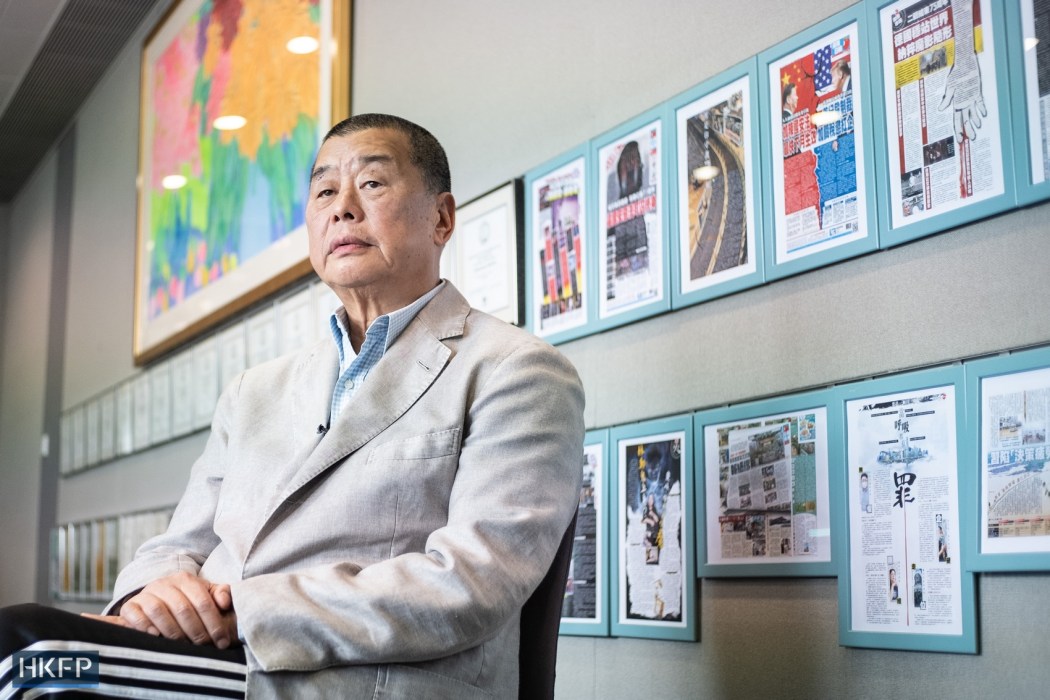
In response, the city's government warned that making a statement with the intent to obstruct the course of justice would likely constitute the offence of contempt of court.
“The suggestion that certain individuals or groups should be immune from legal consequences for their illegal acts is no different from advocating a special pass to break the law, and this totally runs contrary to the spirit of the rule of law,” a spokesperson said.
Protest as US official meets Hong Kong activists
Pro-Beijing groups staged a protest at the US consulate in Hong Kong after a senior US official in Washington met four self-exiled Hong Kong activists wanted by the city’s national security police.

Daniel Kritenbrink, the US Assistant Secretary of State for East Asian and Pacific Affairs, met Elmer Yuen, Anna Kwok, Frances Hui and Joey Siu, who are accused of violating the national security law and are wanted by police.
Wanted activist Ted Hui declared bankrupt
One of the 13 overseas activists for whom national security police have offered a HK$1 million bounty, Ted Hui, was declared bankrupt.
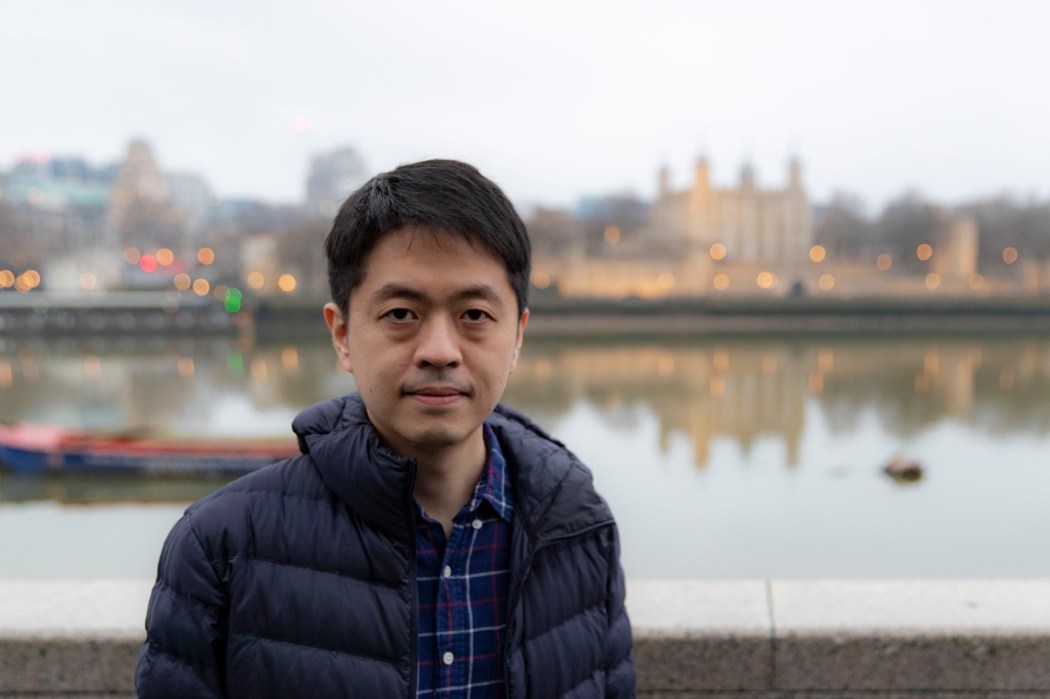
Hui was found guilty in June 2022 of four counts of contempt of court over his absence from legal proceedings after he left the city while on bail. He was handed a three-and-a-half year jail term in absentia that September and ordered to pay legal costs.
High Court Master Kent Yee issued a bankruptcy order on February 6, saying the activist had never responded to requests that he pay legal costs. Hui, who now lives in Australia, was not represented at the hearing.
Activist Agnes Chow wanted by police
Pro-democracy activist Agnes Chow, who in December said she had moved to Canada and would not be returning to the city to meet her bail conditions, is wanted by the police.
Chow was due to report to the city’s police force on December 29, but earlier told a Japanese broadcaster she did not think she could ever return to Hong Kong.
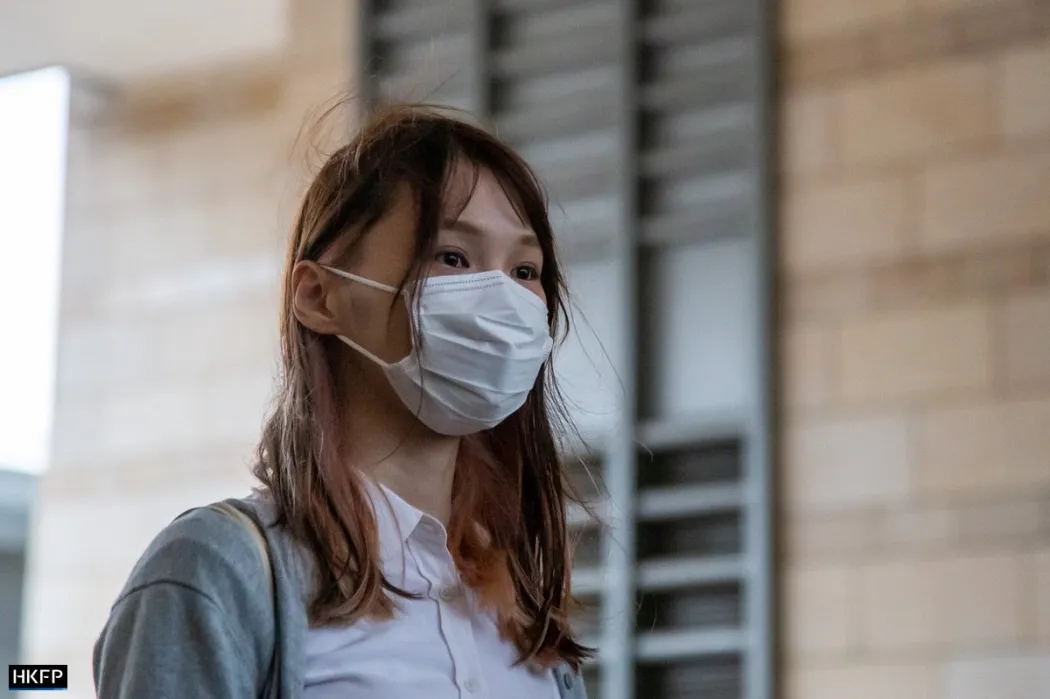
Speaking during a press briefing about the city’s crime rate for 2023 - which rose by almost 30 per cent - Andrew Kan, deputy commissioner of the national security department, was asked whether Chow was now officially wanted by police.
“No fugitive should harbour the illusion that they can leave Hong Kong and evade criminal responsibility,” Kan said. “Unless… Ms. Chow surrenders, she will be pursued for the rest of her life.”
Chow was arrested alongside media tycoon Lai and others in August 2020 on suspicion of “collusion with external elements” under the national security law. She was released without charge and granted bail on condition she hand her passport over to police.

In a social media post published last December from Canada, Chow said police had returned her passport on condition that she travel with five police officers to mainland China to learn about the country’s achievements.
Activist Koo Sze-yiu jailed over planned protest
Veteran activist Koo Sze-yiu was sentenced to nine months in jail over a plan to protest against the overhauled District Council race last December.
Koo, 78, was convicted of “attempting or preparing to do an act with a seditious intention” under the colonial-era sedition law over a planned protest against the local elections. Opposition candidates were shut out following an electoral overhaul that guaranteed only “patriots” could govern.

The court heard that Koo had notified the Registration and Electoral Office of his plan to demonstrate outside the building, but was arrested by national security police hours before he was set to go ahead.
Koo has cancer and has an operation scheduled for March or April.
Pro-Beijing activist calls for security law 'clarity'
Pro-Beijing activist Chan-Ching sum petitioned visiting top Chinese official Xia Baolong, calling for clarification on “soft resistance” and the “bottom line” of the national security law. She said a lack of certainty about what was allowed had left Hongkongers afraid to speak up.

“Since Beijing imposed the national security law in Hong Kong, the general public has had a lot of questions," she said. “I want to ask the central government and the [Hong Kong and Macau Affairs Office] director Xia, as Beijing delivered the national security law, what is its bottom line? Which kinds of speech violate the law? The general public is uncertain and we dare not speak up. We feel unsafe.”
November trial for Tiananmen vigil organisers?
The national security trial involving three members of the group that held annual candlelight vigils to commemorate the 1989 Tiananmen crackdown will begin no earlier than November.

Chow Hang-tung, Albert Ho, and Lee Cheuk-yan - former members of the Hong Kong Alliance in Support of Patriotic Democratic Movements of China - were charged in September 2021 with inciting others “to organise, plan, commit or participate in acts by unlawful means with a view to subverting the State power.”
A panel of designated national security judges in February set dates for the defence and the prosecution to exchange reports, with the submission deadline being November 4, 2024.
Chow Hang-tung ordered to serve out sentence
The High Court ordered Chow to serve the remainder of a 15-month jail term for inciting others to take part in an unauthorised assembly relating to a Tiananmen crackdown vigil in 2021, after the city’s top court overturned her acquittal last month.
She has been detained since her arrest in September 2021 pending trial under the security law.
Performing arts crackdown
Hong Kong performing arts group Fire Makes Us Human announced it would suspend operations, after a venue it planned to use for two productions was withdrawn following government pressure.
The Hong Kong Institute of Contemporary Culture Lee Shau Kee School of Creativity told HKFP the Education Bureau had cited updated guidelines on national security when it asked the school to cancel an agreement to rent performance space to Fire Makes Us Human.
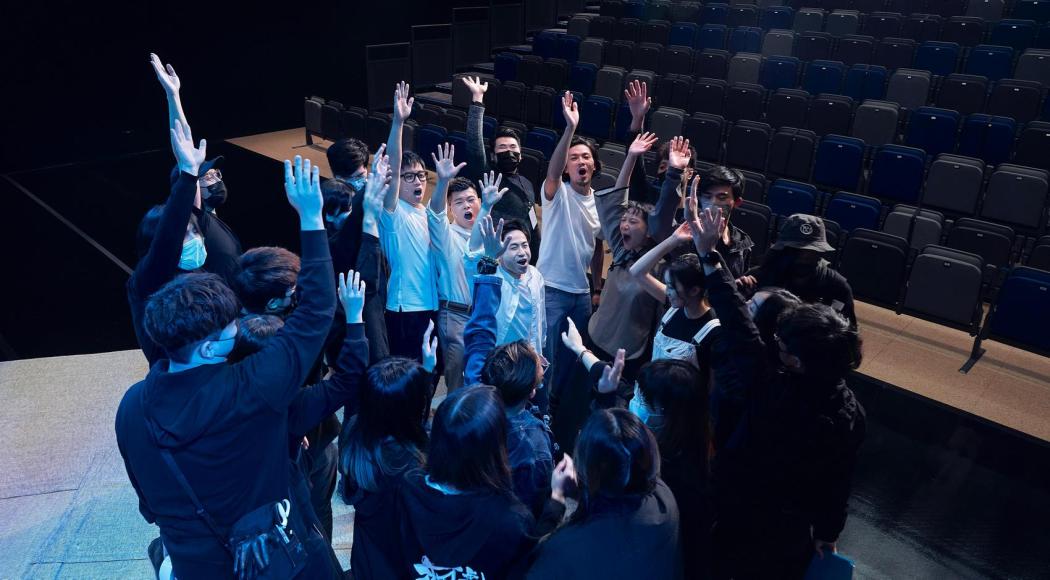
Later in February, the Hong Kong Academy of Performing Arts scrapped a graduation show featuring the play Accidental Death of an Anarchist, saying it had been cancelled due to “changes in the Academy’s production plan.”
The play by Nobel Prize winner Dario Fo was scheduled to be performed between mid-February and early March. Local media reported that the cancellation left some of those involved feeling “helpless” and “speechless.”
And a deaf dance group said it was “saddened” after a charity arts organisation called off three performances scheduled for March, citing “changes in production arrangements.”
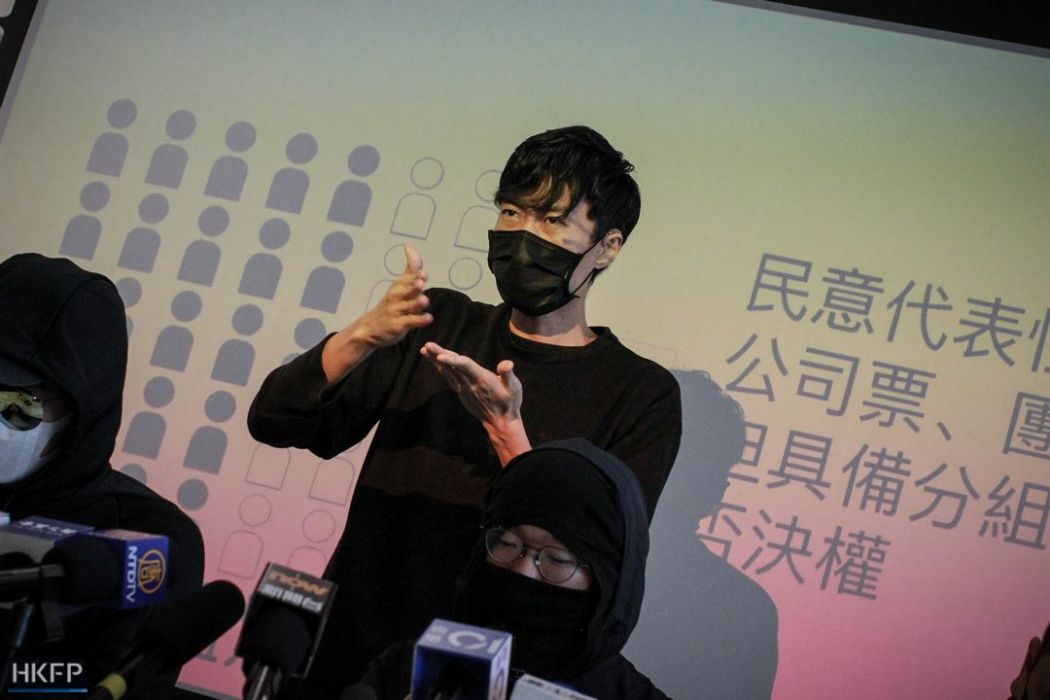
Speculation over the cancellation emerged after Fun Forest’s founder Jason Wong Yiu-pong shared on social media a screenshot of a Facebook status, which claimed that the show had been halted by the sponsor, the Hong Kong Jockey Club.
According to the screenshot, the performance was cancelled after it was discovered that the producer of the dance show had taught people to sing the 2019 protest song Glory to Hong Kong in sign language.
Glory to Hong Kong appeal
More than 30 online links related to Glory to Hong Kong should be ruled as illegal, government lawyers argued in an appeal against a lower court’s refusal to issue an injunction banning the protest anthem.
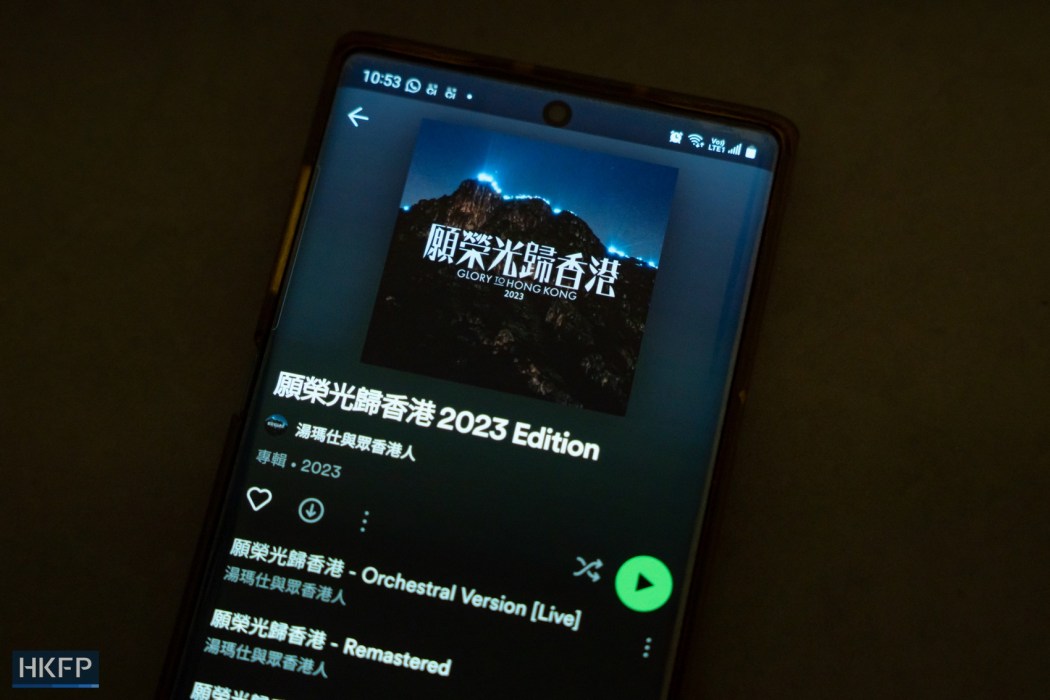
Internet service providers would only remove versions of Glory to Hong Kong if the court declared them to be in breach of the national security law, Senior Counsel Benjamin Yu said. The injunction lists 32 versions.
Yu argued that the videos were seditious and secessionist in nature and were intended to distort China’s national anthem. If these videos continued to be disseminated, it would endanger national security, he said.
In June 2023, Hong Kong authorities sought a court order to bar anyone from distributing Glory to Hong Kong with the intention of inciting secession or sedition, or violating the national anthem law, and to block anyone from assisting with those acts.
Latest prosecution and arrest figures
As of February 23, 291 people had been arrested for suspected breaches of national security since the legislation was enacted, the Security Bureau told HKFP. Among them, 174 people and five companies had been charged under the national security law or the sedition law or with other crimes.
Of those charged, 111 people – including 32 charged under the security law – have been convicted or are awaiting sentencing.
Type of Story: Explainer
Provides context or background, definition and detail on a specific topic.
Support HKFP | Policies & Ethics | Error/typo? | Contact Us | Newsletter | Transparency & Annual Report | Apps
Help safeguard press freedom & keep HKFP free for all readers by supporting our team























